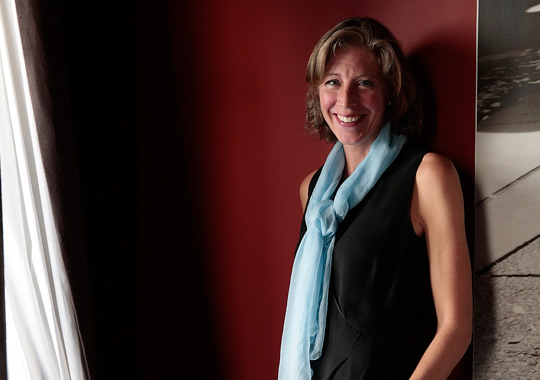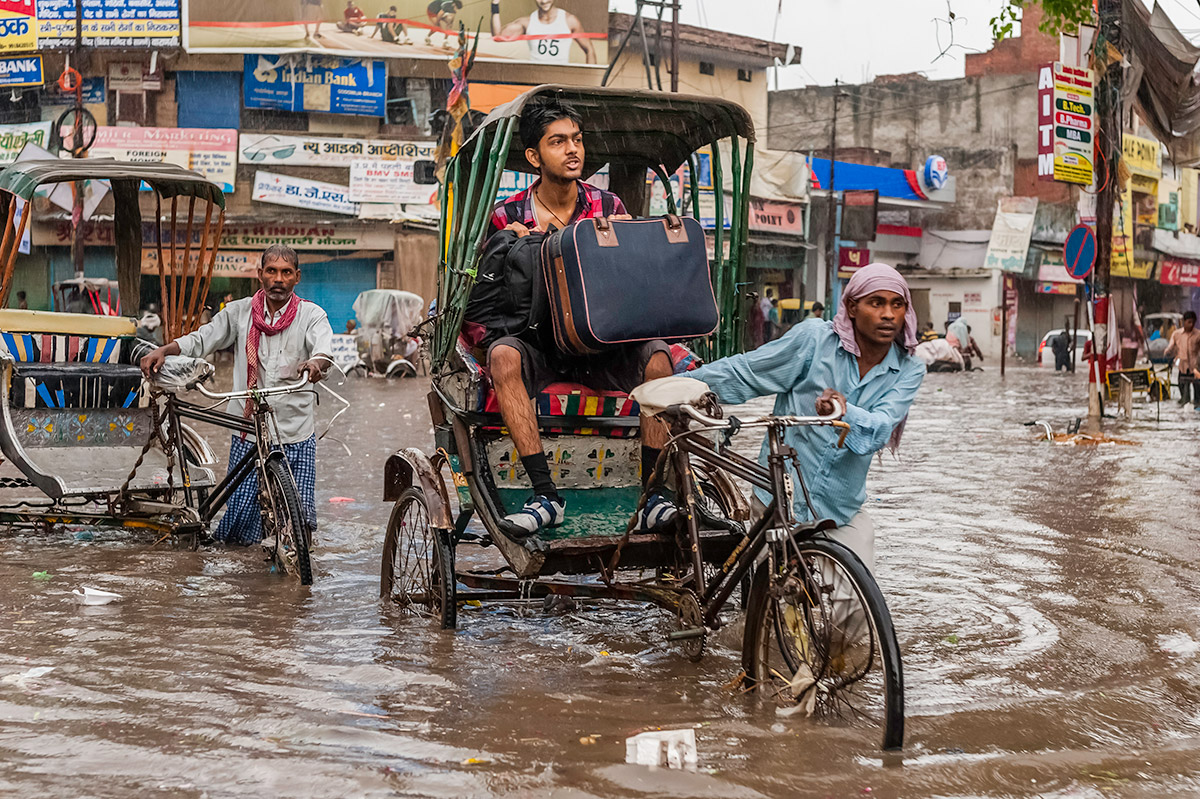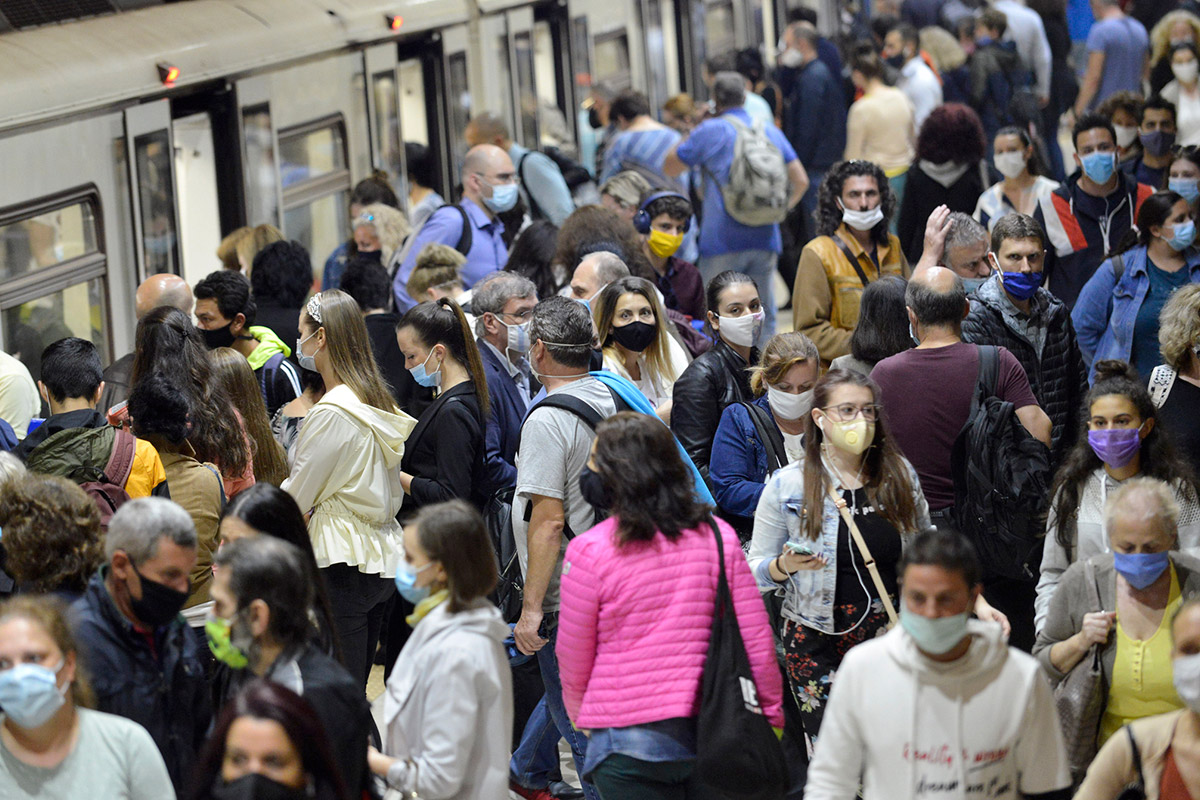When it comes to making judgment calls, Vanessa Colella believes the human brain has great tools but lousy temperament.
On the one hand, “we’re wired to understand the deep context and nuances of complex situations with lots of variables,” says Colella, (M.A. ’96), Chief Innovation Officer for Citi (heading the Citi Ventures and Citi Productivity teams). But on the other, “we are really bad at making decisions that involve probability and latency” — that is, on questions that aren’t right in our faces, right now.

THINKING MORE EFFECTIVELY Vanessa Colella has been looking for better ways to process information since she was a science teacher at a Manhattan high school. (Photo: TC Archives)
Take the COVID pandemic.
“Despite its massive global impact, COVID-19 remains for most people an intangible concept that does not necessarily pose any danger to them or their loved ones,” Colella wrote on the Citi Ventures website in late August. “People simply don’t know if, when, and where they might be in danger of contracting or transmitting the virus.” Sure, Colella says, you can find sites that will tell you the infection rate in your city or even your neighborhood — but that still doesn’t help you figure out the best time to walk your dog or how to get to the supermarket safely. “Faced with an undetectable threat and lacking access to data and guidance pertinent to their specific situation, they have no way of judging their in situ risk levels — thus, it is no surprise that many choose not to follow public health protocols.”
Despite its massive global impact, COVID-19 remains for most people an intangible concept that does not necessarily pose any danger to them or their loved ones. Faced with an undetectable threat and lacking access to data and guidance pertinent to their specific situation, they have no way of judging their in situ risk levels — thus, it is no surprise that many choose not to follow public health protocols.
—Vanessa Colella (M.A. '96), Chief Innovation Officer, Citi
But Colella says a solution is emerging from a convergence of new technological advances: an explosion of available data, processors that break complex problems into separate tasks, and Cloud computing, which enables the use of more computing power, storage and applications. These changes are enabling computers to provide us with what she calls “artificial enlightenment,” or the kind of situation-specific information that will enable us to recognize and respond, in the moment, to a range of threats and opportunities.”
[Watch a clip, from TC’s 2020 Academic Festival, of Colella speaking on artificial enlightenment. Read a profile of her that appeared in TC Today magazine in 2015.]
That shift is an emphatic departure from artificial intelligence (AI), the premise of which is that “the world is full of massive amounts of data, and the way we have to consume that data in order for our brains to handle it is to summarize it.” Rather than understand millions of points of information, AI ensures that “we really only have to deal with a couple.” But the problem, Colella says, is that “every time that we aggregate data, we make it easier for us to understand what that information is and more difficult to understand the nuance underneath the information.”
The Future is Here
What does artificial enlightenment look like in practice?
One example that Colella is very excited about is the COVID-19 Event Risk Assessment Planning Tool, a web app released this past July by scientists at Georgia Tech. This interactive dashboard, which operates from a database that is updated daily, helps users calculate the county-level risk of attending an event where someone else might be actively infected with COVID. The tool estimates the number of circulating cases in each of Georgia’s 159 counties by multiplying the number of cases reported in the past 14 days by an “under-testing factor.” Based on that information, for example, it calculated that there was a 76 percent chance of encountering someone infected with COVID at events in Fulton County attended by 100 people on July 6th. On the same day, in all but 16 Georgia counties, there was a 99 percent chance of encountering a COVID-infected person at an event with 1,000 attendees. Those, Colella notes, are odds that make you think twice — if not about staying home, then at least about wearing a mask.

STREET-LEVEL RESPONSE As Colella writes in another piece on the Citi Ventures site, rescue efforts during monsoon-triggered flooding in India have been aided by flood and rainfall data and government mapping tools that pinpointed stranded residents. (Photo: iStock)
Another example of artificial enlightenment is one recently created by Citi Ventures itself: Worthi, a platform to assist people in their professional skills development.
Upskilling is really personal. For me, working in the tech industry in San Francisco, it might be learning Python. For you, in New York City, it might be learning Spanish. So, among other variables, skills are really location specific.
—Vanessa Colella (M.A. '96), Chief Innovation Officer, Citi
“As the education sector knows very well, this country is filled with people to upskill — we have $1.6 trillion in unpaid loan debt,” Colella says. “But upskilling is really personal. For me, working in the tech industry in San Francisco, it might be learning Python [a multi-purpose programming language]. For you, in New York City, it might be learning Spanish. So, among other variables, skills are really location specific.”
Using data provided by a leading labor-market analytics firm to analyze more than 1,800 occupations and 17,000 skills, Worthi identifies the most valuable skills in desired professions. It will soon be enhanced to enable users to understand which of their current skills are transferable, what it might take to make a career change, and which skills to highlight to potential employers.
Modeling the Paradigm
When it comes to transferring skills, Colella herself has an exceptional story to tell. She earned her undergraduate degree in biology from the Massachusetts Institute of Technology and taught science in disadvantaged communities for Teach for America and then at Manhattan’s Dwight School.
Prompted by a tech “explosion” that she felt wasn’t reaching the classroom, she came to Teachers College in 1995 to earn her master’s in education technology. Her mentor was Robbie McClintock, now Professor Emeritus, whose wiring of Manhattan’s Dalton School sparked a Time magazine cover story, and whose protégés at TC’s Institute for Learning Technologies (ILT) now include some of the biggest names in education technology. [Read a profile of McClintock from TC Today magazine in 2010. Visit TC’s program in Communication, Media, and Learning Technologies Design.]
“Robbie was really the spark behind a lot of this, for me and many other people,” says Colella, whose bio on the Citi Ventures site opens with the apocryphal anonymous quote: “It cannot be done. I told Wilbur that, and I told Orville that, and now I am telling you that.” “He believed in the tools not for their own sake, but asking, ‘What else could we do with these things?’ He got people to think differently and explore.”
Colella did just that in leadership roles at McKinsey, Yahoo! and U.S. Venture Partners. But it’s at Citi that she has best combined her abiding sense of curiosity with a desire to help people live better lives. Her work conceiving and launching CitiBike led Citi to win Advertising Age’s 2013 Creativity Award and the Gold Pencil in 2014. She has since been recognized on the Global Corporate Venturing Power list in 2017-2019, and named to Institutional Investor’s Fintech Finance list from 2015-2018.
“Our view is that no one in this day and age should be doing anything without a social justice lens,” she says. “More and more, we see that the challenges and opportunities today demand that we think of our roles more expansively. The problems get more and more complex, so social justice isn’t an adjunct to what we do. You almost have to start there.”
Our view is that no one in this day and age should be doing anything without a social justice lens. More and more, we see that the challenges and opportunities today demand that we think of our roles more expansively. The problems get more and more complex, so social justice isn’t an adjunct to what we do. You almost have to start there.
—Vanessa Colella (M.A. '96), Chief Innovation Officer, Citi
Similarly, she says, technological change during the next decade will be driven by “people who deeply understand the power of these tools — people who know about psychology, teaching and learning, and relationships. They need to be front and center in designing these tools.”
Looking back, she’s not surprised to find herself in a job that, she agrees, is about as cool as it gets.
“I was always super-interested in helping people think more effectively,” she says. “Thirty-five years ago, when I started teaching, the pandemic was AIDS, and the issue was how we might help young people make safe decisions about safely interacting. Flash forward to now, and in essence we’re talking about the same thing. So education was the genesis of all this.”
